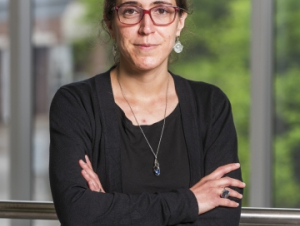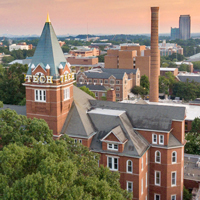Latest News
Research from Georgia Tech is showing how cracks occur and spread through materials — and how best to prevent them.
Created by the Research Corporation for Science Advancement, the award provides continuity funding to support early-career researchers pursuing programs focused on training the next generation of scientists.
New work from Georgia Tech is showing how a simple glass of wine can serve as a powerful gateway for understanding advanced research and technologies.
Afi Ramadhani, a graduate student in economics and a student affiliate of Georgia Tech’s Energy Policy Innovation Center, has won a prize for the best research paper from the School of Economics. The research developed in the paper was supported by EPIcenter’s Graduate Student Summer Research Program.
- 1 of 258
- older ›











